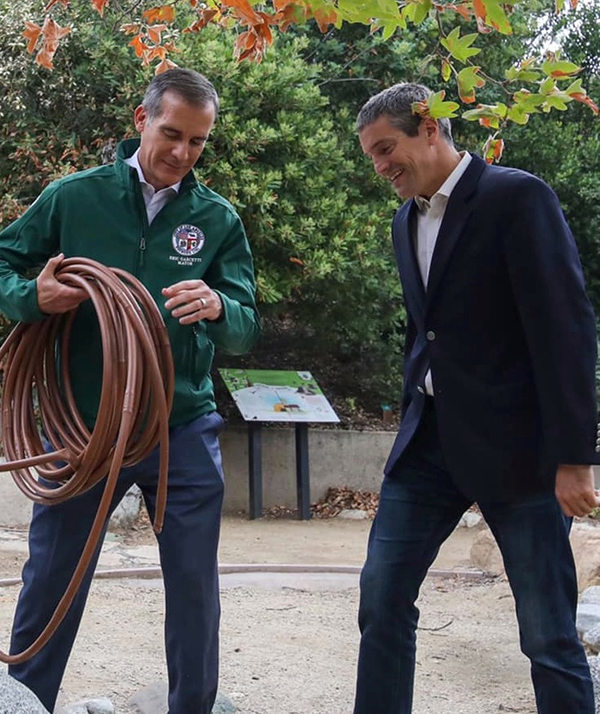Wave Wire Services
LOS ANGELES — The State Water Resources Control Board voted May 24 to ban watering of non-functional turf at commercial, industrial and institutional properties, the latest in a series of steps to conserve water amid a historic drought.
The ban — which does not include turf at residences or turf used for recreation or community purposes — will be effective once approved by the Office of Administrative Law, which typically takes about 10 days, according to the board. Violations of the ban would be punishable by a fine of up to $500.
The board also voted to require local agencies to implement water-use restrictions — with such limits currently covering only about half of California’s population. The restrictions are aimed at addressing a shortage of water supplies that’s been pegged at up to 20%.
The board’s meeting came one day after Gov. Gavin Newsom renewed his calls for strict water conservation measures across California in a meeting May 23 with the state’s largest urban water suppliers — warning that if local efforts don’t save enough water, the state will have to enact mandatory restrictions.
“Every water agency across the state needs to take more aggressive actions to communicate about the drought emergency and implement conservation measures,” Newsom said.
“Californians made significant changes since the last drought but we have seen an uptick in water use, especially as we enter the summer months. We all have to be more thoughtful about how to make every drop count.”
Newsom will meet with the agencies again in two months to get an update on conservation efforts. He also asked them to submit water use data more frequently and increase transparency so the state can more accurately measure whether it is meeting its conservation goals.
The State Water Resources Control Board is scheduled to vote May 24 on a statewide ban on watering non-functional turf at commercial, industrial and institutional locations. The board will also consider requiring local agencies to implement water use restrictions. Local water agency restrictions currently only cover about half of California’s population.
The city of Los Angeles will enact two-day outdoor watering restrictions starting on June 1, down from the current three, with watering permitted at odd-numbered street addresses on Mondays and Fridays, and at even-numbered addresses on Thursdays and Sundays.
Mayor Eric Garcetti met with California Natural Resources Agency Secretary Wade Crowfoot May 20 to highlight the need to protect the region’s trees, even with water restrictions, amid the historic drought. Trees can capture stormwater, improve water quality and reduce flood risk, along with helping air quality and the impacts of heat waves.
Once the watering restrictions take effect in Los Angeles, outdoor watering with sprinklers will be limited to eight minutes per station. Sprinklers with water-conserving nozzles will be limited to 15 minutes per station. All watering will have to be done in the evening or early morning, with no watering permitted outdoors between 9 a.m. and 4 p.m.
The two-day watering restrictions will be enforced by the Conservation Response Unit, which will focus on areas that are using the most water, according to DWP General Manager and Chief Engineer Marty Adams. He said when the restrictions were announced that the department will re-assign employees to ensure coverage in all areas of the city, and might bring on additional personnel during the summer.
Garcetti also said the water restrictions’ enforcement will begin with education for people who are violating the ordinance, but it will escalate with fines and tickets if needed.
The city’s policy is less strict than some parts of L.A. County, which will be limited to one-day per week watering.
According to Newsom’s office, banning watering of decorative lawns would save between 156,000 acre-feet and 260,000 acre-feet per year, the equivalent of water used by 780,000 households in a year.
The governor’s office also urged people to shower for only five minutes or less, stop taking baths, only wash full loads of clothes and use a broom instead of a hose to clean outdoor areas.











